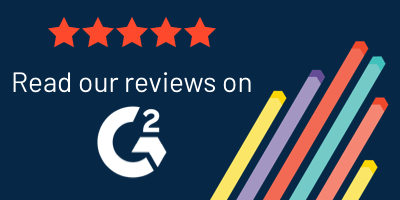Mental Health in Cybersecurity: Insights from Industry Experts
During a recent webinar, Michelle Randall, Chief Marketing Officer at Onspring, and Tamika Bass, Cybersecurity Director at Gannett Fleming, engaged in a valuable conversation about the role of mental health in the cybersecurity industry. Their dialogue underscores the criticality of mental stability in such a high-pressure field and provides vital insights for coping with industry-induced stress.
Mental Health in Cybersecurity
Bass began the discussion by revealing some alarming statistics about mental health deterioration in our field. According to ISACA,
• 27% of cybersecurity professionals have seen a decline in their mental well-being over the past year.
• 66% of cybersecurity professionals experience stress at work.
• As a result of this work stress, 51% have been prescribed medication for their mental health.
These figures set the stage for an important discussion on precautions and strategies needed to enhance the quality of life for professionals in the industry.
The challenge of preserving mental health for cybersecurity professionals is steeped in the inherent pressure of safeguarding a company’s data, compounded by the dread of culpability if breach events occur. Bass plainly stated, “There’s pressure to protect the organization’s data … They’re always looking for somebody to blame.”
Strategies for Well-being
Given these pressures, Bass emphasized addressing mental health issues head-on through techniques such as reframing. Explaining the concept, she said, “Reframing, for me, is when you look at a situation from a different perspective.” By reframing, professionals can shift their mindsets from feeling victimized by workplace interruptions to understanding them as merely varying communication styles.
Randall echoed these strategies, admitting her worry with conflict but asserting the importance of mindful phrasing to diffuse such situations. Expressions like “help me understand” can promote dialogue while circumventing unnecessary quarrel.
Bass also referenced the “Let Them” theory from Mel Robbin’s book, whose origin is actually based on a poem entitled “Let Them” published in 2019 by Cassie Phillips. She encouraged attendees to step back, analyze a situation, and understand others’ intentions before emotionally reacting. This approach inevitably leads to improved emotional management, perspective taking, and conflict prevention.
Advancing Communication and Self-care
A key takeaway from this exchange was the benefit of acknowledging vs. avoiding conflict. Bass asserted that conflict can act as a catalyst for growth and clarity. Furthermore, she discussed her experience with confronting a colleague and the resulting relief and progress after doing so. Being able to manage and harness conflict strategically helps foster a healthier work environment.
Drawing a parallel to airplane safety instructions, Randall stressed putting oneself first, which translates to better mental health. Concurrently, Bass reiterated the importance of defining what makes one happy and maintaining boundaries to prevent burnout.

Ensuring Team Well-being
The conversation also explored how fostering relationships with team members can promote mental health at the group level. Bass aptly expressed, “I think when you establish that relationship with your team and they feel comfortable having those conversations, you can acknowledge that they may need a mental health day.” Open communication, prioritizing tasks and discussing stress with superiors further assists in a healthier team dynamic.
Randall added the value of utilizing employee assistance programs while acknowledging the difficulty of managing stress in demanding environments. Bass recommended coping mechanisms like the serenity prayer to deal with organizational changes—an acceptance of what can’t be changed.
This is a conversation we can all learn from and apply to our professional routines to make our lives more fulfilling and less stressful in this challenging industry. Watch the on-demand webinar in full to hear more details and strategies for managing stress as a professional in cybersecurity.





